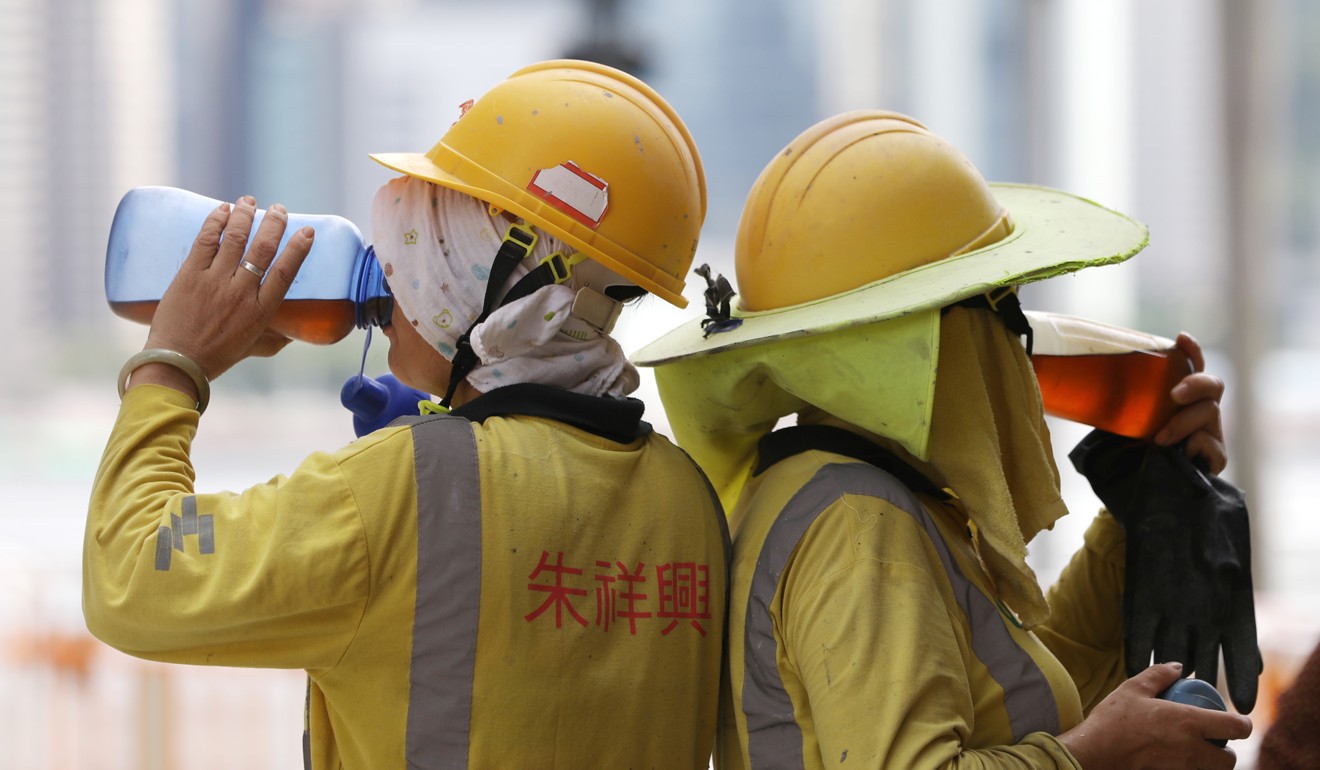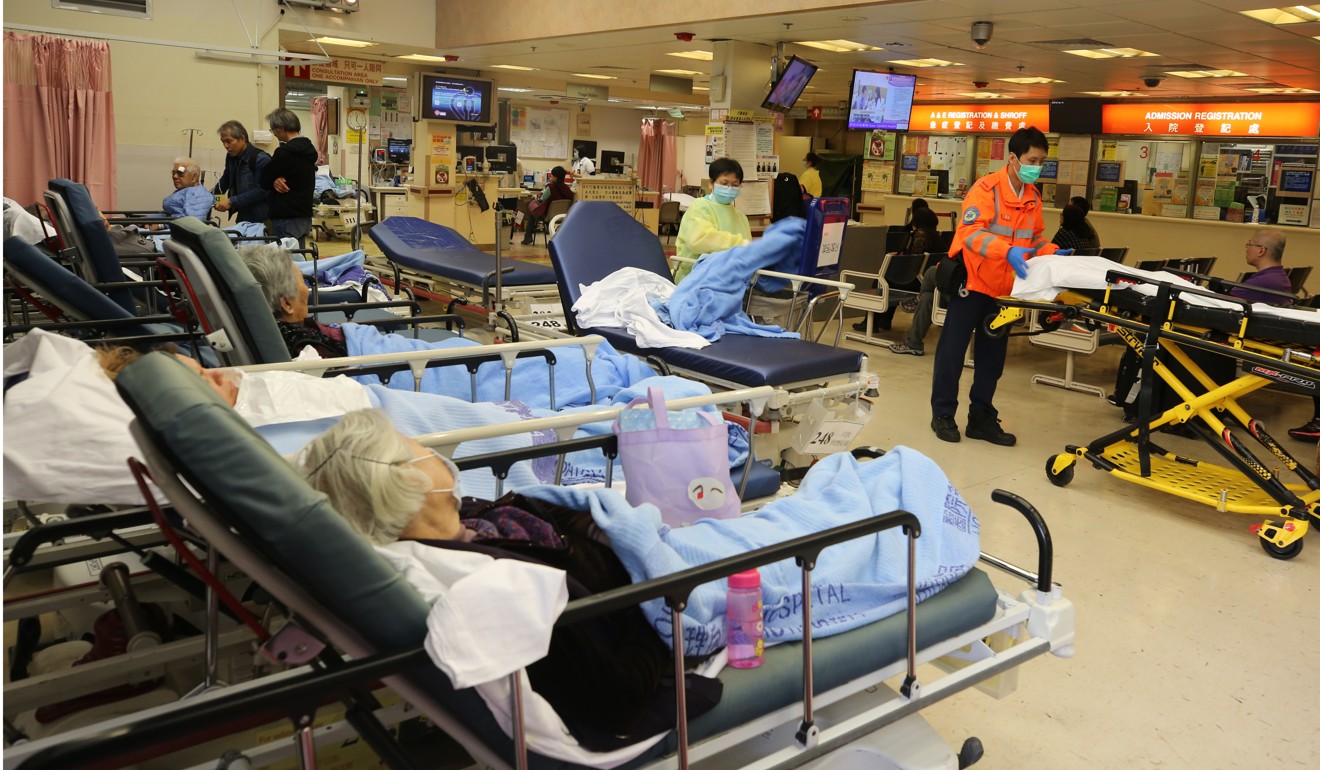
Why hotter Earth poses greater health risks to Hong Kong than other cities around the globe
- Global Heat Health Information Network holds inaugural forum in Hong Kong
- World cannot ‘afford a business-as-usual approach to solving problem’ expert says
Hong Kong should expect a greater burden on health care services as days and nights of extreme heat become more intense, frequent and prolonged against the backdrop of a changing climate and demographics, experts warn.
The grim state of play was illustrated by climate, weather, medical and planning specialists in the city at the first ever forum held by the Global Heat Health Information Network on Monday, focused on the “silent emergency” a hotter Earth posed to public health.
“Temperatures are not only increasing; the speed at which they are going up is also increasing,” said Joy Shumake-Guillemot, head of the World Health Organisation and World Meteorological Organisation’s joint climate and health office.
“We cannot afford a business-as-usual approach to solving this problem.”

Spearheaded by the United Nations’ WHO and WMO, and the US National Oceanic and Atmospheric Administration, the network aims to scale up efforts to manage the complex human health risks introduced by extreme and increasing ambient heat. It launched in 2016.
China and Russia perform controversial experiments to modify atmosphere
Panellists suggested cities ramp up early-warning systems for heatwaves, raise public awareness on heat-related health issues and introduce policies to protect vulnerable groups such as outdoor workers.
“This is not a normal science meeting, but a pioneering conversation about what we need to do, how we need to do it differently and how to work together to get it done,” Shumake-Guillemot said.
In heavily urbanised and densely populated Hong Kong, studies have shown that mortality rates increase an average of 1.8 per cent for every one-degree increase when temperatures reach 28.2 degrees Celsius, said Professor Emily Chan Ying-yang, director of Chinese University’s Centre for Global Health.
“From a [hospitalisation] and health service burden point of view, heat is an important indicator,” she said. “Cold days harvest more deaths but once you get to hospitalisations, it’s very clear that hot days get more people into hospital than colder days.”
Mortality during the heat increased among older and poorer residents too, once temperatures surpassed 29 degrees, Chan said.

Diabetics and asthmatics were also susceptible as heat exacerbated air pollution, such as ozone.
Coupled with decreasing average wind speeds, which meant the city was not as cool during evenings, and intensifying “heat island effects” – urban sites becoming much warmer than surrounding rural areas – the heat-health risks in Hong Kong were much higher than in other cities, she said.
Nations agree to milestone rulebook for Paris climate treaty
Professor Chris Webster, dean of the architecture faculty at the University of Hong Kong, which hosted the forum, said: “The heat-health issue will increasingly be an urban issue and the way you plan, build, manage, govern, moderate and adjust urban habitats will be a fundamental part in the response.”
There was a record number of hot nights – when average temperatures surpass 28 degrees – last year, and an all-time high in very hot days – over 33 degrees – in 2016, the Hong Kong Observatory said.
According to the WMO, 2018 is likely to go into the books as the fourth-hottest year on record.

The Earth has warmed about one degree already during industrial times, attributed mainly to climate change, and scientists expect another half a degree of warming between 2030 and 2052.
Global carbon emissions reached a record high in 2018
“The expectation is there will be quite a big increase in frequency, intensity and duration of heat events,” said Professor Kristie Ebi, a lead author of the UN-backed Intergovernmental Panel on Climate Change’s recent special report on the effects and pathways of 1.5 degrees of warming, the lower threshold set out in the 2015 Paris climate agreement.
The three-day forum ends on Wednesday.
Topics that will be discussed include the effectiveness of heat interventions such as setting up cooling shelters and developing heat action plans.
About 200 countries finally agreed on a “rule book” for implementation of the Paris agreement at a climate conference in Katowice, Poland, over the weekend after days of round-the-clock talks.

